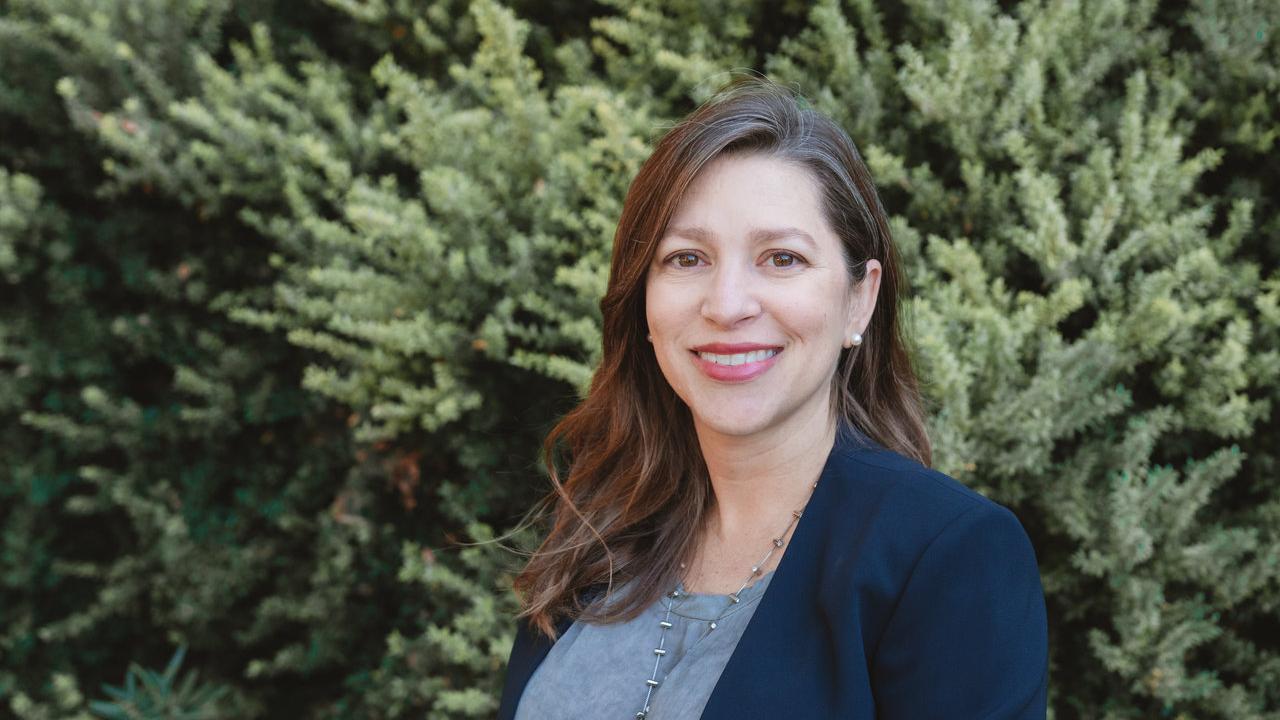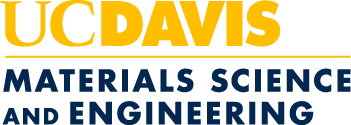
Marina Leite: Materials for Renewable Energy
As the world pushes for renewable energy, materials are going to play a key role in making sure it’s both possible and sustainable. New materials science and engineering professor Marina Leite works towards this by studying materials that can both generate and store energy reliably to create the devices that will power the renewable energy revolution.
“We’re trying to discover new materials and control their properties to take advantage of physical and chemical processes to develop high-performance devices,” she said.
Leite works with photovoltaics and optical materials to connect nanoscale properties with macroscale device performance that turns light into electricity. She emphasizes designing these devices from the nanoscale up so that they work safely and efficiently on all levels to harness solar energy. Her group investigates the behavior of light on the nanoscale to generate electricity and scale up the process to create new generations of photovoltaic devices.
Leite is particularly interested in a class of hybrid organic/inorganic materials called perovskites for use in solar cells. Although the perovskites show extraordinary optical and electrical responses, they are extremely unstable, meaning their properties can change rapidly and frequently. Her goal is to correlate the material’s structural, electrical and optical properties to find the origins of these changes so they can be properly used in a solar cell.
In the realm of energy storage, she works with solid-state batteries. Most batteries use a liquid electrolyte as a solvent, but it’s flammable at fairly low temperatures, which is why some electronics catch fire when they overheat. Solving this problem by using a solid-state material instead of a liquid one makes energy storage and redistribution safer and more efficient.
“Having a background in materials science can really help to address a lot of the societal problems that we have right now in engineering,” she said.
Multidisciplinary Approach
Leite began working with solar cells as a postdoctoral scholar at CalTech, where she began to harness her multidisciplinary background. She earned her B.S. in chemistry from the Federal University of Pernambuco, Brazil, and her M.S. in nanostructured materials and Ph.D. in semiconductor physics from the University of Campinas in Brazil.
“I did my undergrad in chemistry and my Ph.D. in physics, so I think MSE is the perfect home for me because it’s so multidisciplinary,” she said. She tries to maintain this multidisciplinary approach in her lab by recruiting students with diverse backgrounds. “I think it’s very beneficial for the entire group.”
Leite is excited to join UC Davis and become a part of the university’s dedication to sustainability and women in STEM.
“I really like the fact that there are a lot of well-accomplished female faculty and female students in the College of Engineering here and that’s how it should be everywhere” she said. “A well balanced-environment is beneficial to everyone.”
Leite also appreciates UC Davis’ proximity to the Bay Area, which makes it easier to collaborate with national laboratories and universities in the area. She also plans to be a heavy user of the UC Davis Center for Nano- and MicroManufacturing (CNM2) for her group’s work on photonics and nanomaterials.
“I’m eager to start collaborating with people and continue all of the research we have been doing on optical materials,” she said. “I can’t wait to see the first experiments coming out of our lab soon and to publish our first papers with UC Davis affiliation.”
Outside of teaching and research, Leite is a sushi lover and an avid traveler.
